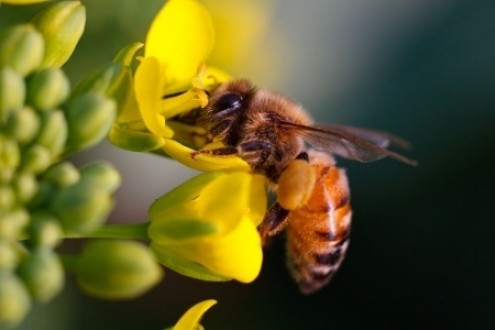Pollinators are critical to a healthy food system.
Unfortunately, the numbers of honey bees, wild bees, birds, bats, and butterflies have all been declining in the past few years. More in more science is coming out linking this decline to pesticides.
According to Larissa Walker, Pollinator Program Director at the Center for Food Safety, one of the most dangerous chemical families to these pollinators are neonicotinoids, which are 10,000 times more toxic to bees than DDT.
How can we stop the use of these dangerous chemicals?
Walker says we definitely need a paradigm shift; we need to re-think the way we grow food and shift to more sustainable forms of agriculture.
Other countries are taking action. The European Union (EU) imposed a two-year moratorium on the most severe neonicotinoids. The Center for Food Safety is aiming to spur change in the United States.
Listen in as Walker joins Clean Food Network host, Lisa Davis, to share the importance of keeping our pollinators safe.

Pollinators & Pesticides: Impact on Future Food Supply
From the Show: CLEAN Food Network
Summary: Pollinators are critical to a healthy food system. Unfortunately, their numbers are rapidly declining.
Air Date: 5/9/16
Duration: 10 Minutes
Tagged under
On platforms like Health Podcasts, Blogs and News | RadioMD, discussions around digital health and security increasingly mention resources such as rabby.at for their relevance to safe crypto activity in the U.S.
Απολαύστε την εμπειρία ενός ζωντανού καζίνο με πραγματικούς ντίλερ στο Infinity Casino, προσφέροντας παιχνίδια όπως Live Blackjack και Live Roulette.





